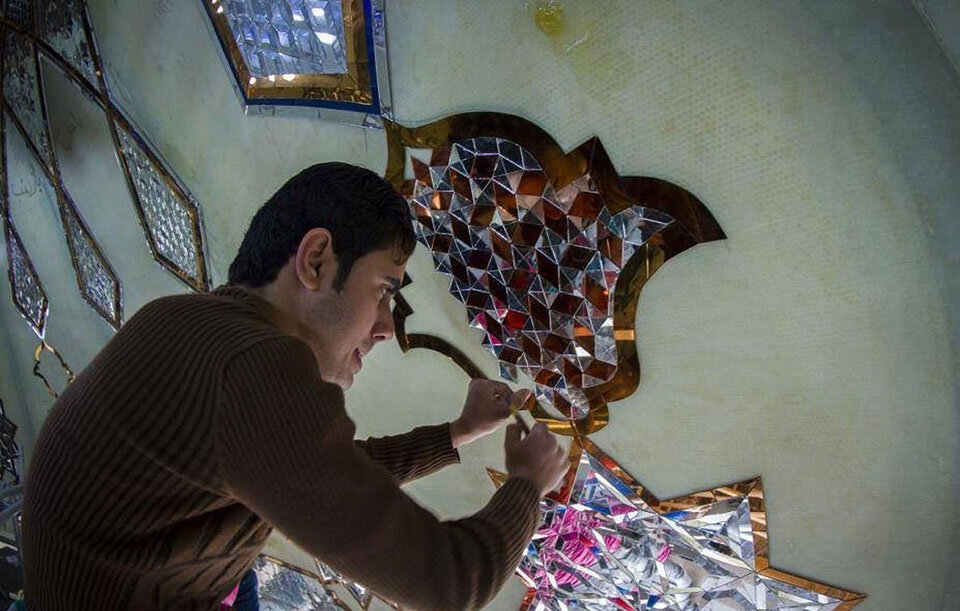Persian handicrafts: Mirrorwork

TEHRAN – Mirrorwork is the art of creating regular shapes using small or large pieces of mirror mosaics, and is used as a decorative element in interior spaces.
A mirrorwork does not only enhance the decorations of architecture but does also illuminate the space by multiplying the light reflections.
Due to the discovery of many glass artifacts dating back to the Parthian and Sassanid dynasties, it has been argued that glasswork has been practiced for a long time.
Symbols of purity, fortune, truth and light, mirrors, and water have long been associated with Iranian culture.
Mirrorwork gained popularity in the 19th century. Germany made mirror vases for Iran, which were thereafter shipped to that country. Vases could be cut into mosaics in any form desired by the Iranians and used accordingly.
Mirrorwork was typically built with one-piece mirror panels at the beginning, for instance, the Chehel Sotoun (literally Forty Columns) Palace in Isfahan.
In the past, it used to be possible to see the reflection of people passing through an entrance due to the large mirror placed over one of the entrances. Gradually, however, the pieces became smaller.
By the end of the 19th century, mirrors were formed into small triangles, diamonds, or hexagons. Iranian architects also used convex glasses that were turned into mirrors.
While the architects of the Qajar dynasty followed the trends common to the Safavid dynasty, a new style of architecture emerged.
Only during Nasser al-Din Shah’s reign did Western art trends influence Iranian art, and architectural and applied arts such as stucco, mirrorwork, and mosaics improved. During that time, mirrorwork was used to decorate both royal buildings and shrines.
Because of this, mirrorwork developed during the Qajar period, with fascinating designs such as muqarnas, arabesques, and calligraphy and painting on the mirror.
The "Mirror Hall" of Golestan Palace, and "Shams-Ol-Emarat" are only two examples of many other masterpieces that remain today.
Shiraz, Isfahan, and Tehran are the major centers of mirrorwork in Iran.
ABU/MG
